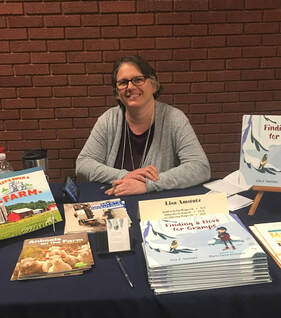You’ve done the research. You’ve written, revised, and
polished your manuscript until it’s as shiny as you can make it. Now what?
If you want to publish in the trade market, you may want to find
an agent. It is possible to sell your work on your own, especially to smaller
publishers, and many authors build successful careers that way. However, an
agent can open doors for you. They handle submissions and contracts and may help
edit your work, give marketing and career advice, offer a shoulder to cry on,
and more.
Unfortunately, finding an agent is easier said than done. While
agents are more accessible than ever before thanks to the Internet, competition
is stiff. Agents receive hundreds if not thousands of queries during open
submission periods, all competing for one or two spots on their list. It sounds
discouraging, I know. But you can improve your odds!
Write a bio that highlights any relevant writing or educational experience. It’s nice to share a personal detail or two, but don’t overshare. Do mention if you’re a member of SCBWI, 12 x 12, or other professional organization.
Keep it professional. Don’t oversell or undersell yourself. Your book likely isn’t the next Harry Potter. But be positive about it—and yourself! Be polite and friendly.
5. Remember that while writing is an art, publishing is a business. Agents have to earn a living too, and many work on commission alone. So they look for books they think they can sell. That means books with an appealing hook, a clear market, strong writing, and a fresh take on a topic.
I see a lot of submissions that, while nicely written, feel vaguely familiar. They’re too similar to other books already on the market to really stand out. The ones that give me goosebumps are those that feel so exciting, lovely, or unique that I am still thinking about them the next day. Those are an easy yes!
Finding an agent is not easy, and it may take time. But if you hang in there and keep learning and growing as a writer and putting your work into the world, I am confident you will succeed!
Meet the Author:


Thank you for the sage advice Lisa. Searching for the right agent is indeed an arduous task requiring resilience and persistence. Finding the fit is not just for the writer, but also the agent, and once I realized that - as well as how many other people with whom I am in competition - the rejections became a teensy bit easier to accept.
ReplyDeleteThanks so much for this helpful and encouraging post!
ReplyDeleteThank you, Lisa, for sharing your thoughts about seeking an agent.
ReplyDeleteSuzy Leopold
Thanks for taking the time to share your thoughts and encouragement, Lisa. Sometimes I think a crystal ball would help!
ReplyDeleteThanks, Lisa. I agree that it's not easy to find an agent even if writers do all the thing.
ReplyDeleteThese are all fantastic insights. It really helps as a writer to understand things from an agents point of view. Thanks so much for sharing!
ReplyDeleteSometimes I think I look for agents that have works that are too similar, so I appreciated the reminder on #3!
ReplyDeleteThank you for the tips, Lisa! My favorite is writing a manuscript that has the agent thinking about it for days. Goosebumps!
ReplyDeleteThank you for sharing your perspective. I will look more carefully at an agent's clientele to see if they rep someone whose work is too similar to mine. That's a great tip!
ReplyDeleteTrue that - I am very lucky to have gotten a starting out agent and grown with him.
ReplyDeleteGreat post, Lisa!
ReplyDeleteThanks, Lisa, for the hint to not be too close a match tot eh agent's other's clients. Great post!
ReplyDeleteLisa, thank you for sharing these tips to consider while researching a possible agent.
ReplyDelete